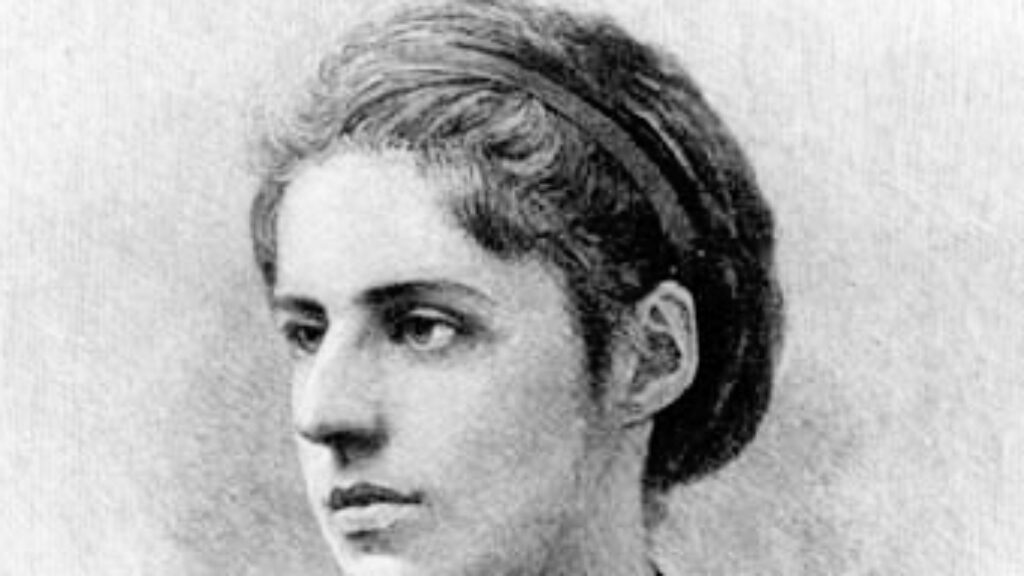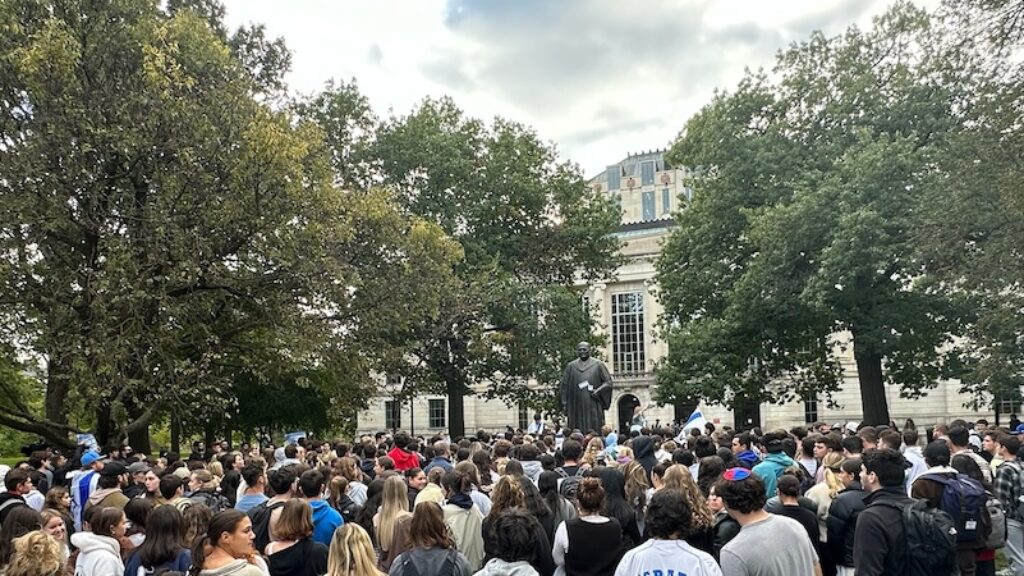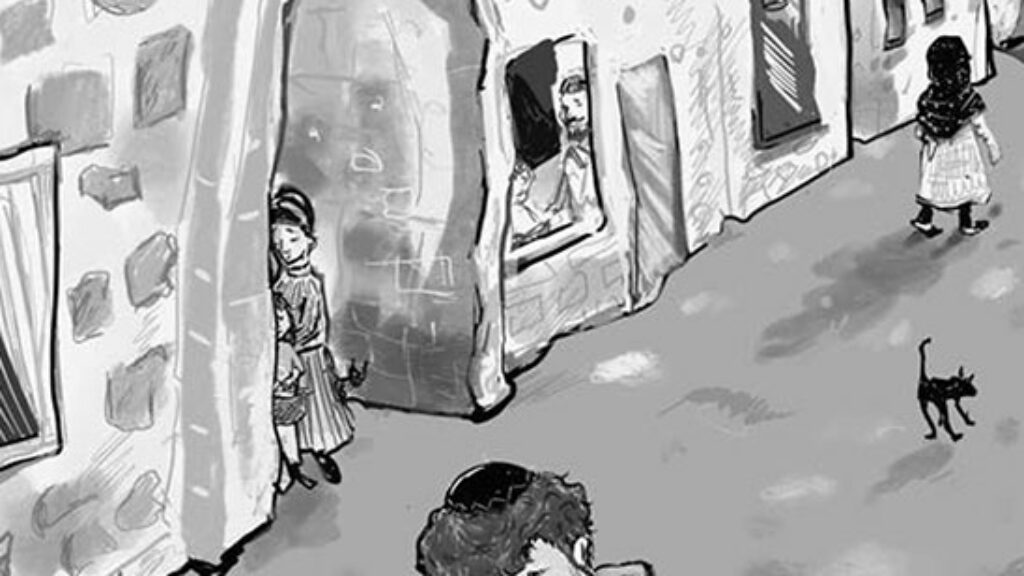The View from Paris: A Rejoinder to Ethan Katz and Maud Mandel
“Unlike Professor Trigano,” Ethan Katz and Maud Mandel write, “we have the luxury of writing from the other side of the Atlantic.” Indeed.
Professors Katz and Mandel not only write from the other side of the Atlantic, they view the anti-Semitic violence we Jews are living through here in France through American-made binoculars. There is, perhaps, nothing wrong with citing the work of other American academics on recent French history as if it were definitive (“as John Bowen and Joan Scott have convincingly shown,” and so on), or writing as if something like the multicultural policies of American university campuses (or even America) could address the difficult and distinctively European social issues France and French Jewry face right now, but the stridency of their tone is surprising. My essay, which attempted to condense 30 years of history, scholarship, and increasingly painful experience into an account of my “journey through French anti-Semitism,” makes “historical leaps,” “overlooks” this, and “ignores” that; my views are “distorted,” my claims are “unsubstantiated,” my factual claims are “simply untrue,” and my emphases are “undue.” I might have expected more from academic colleagues; after all I have edited two journals and written 11 books on the subject, most recently a collection of pieces titled Fifteen Years of Loneliness: French Jews 2000–2015. But the attempt to reduce my arguments, observation, and analysis to a mere state of mind, and to do so in such heated prose, is, in the end, revealing.
One thing that particularly exercises Katz and Mandel is my statement that it is problematic that after virtually every condemnation of a vicious attack by a Muslim or Muslims upon Jews there is a warning not to slip into Islamophobia or conflate Islam with terrorism. As I wrote, this is a public ritual that involves “exculpation of Islam from any responsibility” for the violence. It’s pretty clear that they think that I myself have slipped into Islamophobia here. I am “quick,” they say, “to criticize Islam as a whole,” and have fallen “into a vision of Islam as characterized from the Qur’an to the present by an unceasing, immutable hatred of Jews.” But of course hatred doesn’t have to be unceasing and immutable to be both a genuine historical phenomenon and dangerous. It is not me, but Katz and Mandel who are indulging in wishful historical thinking here.
Further, whether Mark Cohen was categorically right that “the pre-modern history of anti-Judaism was far more severe and persistent in Christian Europe than in the Islamic world” may be less clear than they think. Certainly it was different. They might usefully consult David Littman and Paul Fenton’s massive collection of texts L’Exil au Maghreb, la condition juive sous l’islam 1148–1912, for instance, or compare the 1066 massacre in Granada to the depredations of the First Crusade in 1096. With regard to more modern times, they might consult, among others, a book I edited covering the period from 1940 until 1970, The Exclusion of the Jews from Arab Lands. And, of course, modern forms of radical Islam, such as Salafism and Wahhabism, are, yes, precisely modern, but that does not mean that they are not Islamic movements or that their teachings do not have deep roots in the tradition.
If these modern forms of radical Islam were not so widely and firmly entrenched and if there were large Arab and Islamic institutions, rather than just a few courageous individuals, that loudly and unequivocally condemned the violence, then such lectures on why Muslim anti-Semitism in France was not historically inevitable might have more relevance. As it is, the apparent function of both the politician’s automatic discourse and the present professorial chiding is to keep one from thinking about the nature of empirical Islam as it actually exists in the mosques and on the streets—and what might be required of it to achieve real social integration in France.
Nor will it do, as Katz and Mandel almost suggest, to make of the current crisis a conflict between so-called Algerian Jews (including, they write, “Professor Trigano himself,” though the category has not existed for more than half a century and we have, in fact, been “technically”—one notes their adjective—French since 1870) and the Muslim community. In fact, I went into some detail on the origins of the current situation in French politics of the 1980s.
Katz and Mandel are, if anything, even more incensed by my political genealogy of the present situation in which French Jews find themselves. The core of my analysis was that President Mitterrand backed SOS Racisme in order to co-opt the “Marche des Beurs” (which threatened the Socialist Party’s power) and create the specter of a fascist threat in the form of Le Pen by forming an “anti-fascist” front. Given the still-fresh memory of the Shoah, it was politically and symbolically important that SOS Racisme grew out of the French Jewish Students’ Union. In imputing a large historical responsibility to Mitterrand and his administration, I am precisely not blaming immigrants and Muslims, as Katz and Mandel would seem to think. What I am saying is that both the Jewish community and Muslims were politically instrumentalized by Mitterrand to terrible historical effect.
Katz and Mandel’s description of SOS Racisme itself is extraordinarily, almost comically, uncritical: “Working together to create a just and peaceful France, these activists put aside their differences . . .” Their only real critique of my account of the political use and eventual effect of this movement in French politics is to argue over whether “Jews=Immigrants” was its most important slogan. Suffice it to say that it was significant, for the equation it asserted underlay the pervading silence that would, for a long time, greet anti-Jewish violence. It was a conflict between two groups somehow alien to French society rather than within it.
In their conclusion Katz and Mandel acknowledge that “anti-Jewish attitudes and violence are certainly on the rise in France.” And then they go on to another kind of ritual automatic discourse. Since “racism, as is well-known, must be measured by . . . structural limitations that prevent full participation in a given society,” and since Muslims face such limitations and Jews do not, one ought not speak “merely of rising anti-Semitism”—merely!—when “other French citizens are being systematically targeted for discrimination.” Their language here is unintentionally revealing: Anti-Judaism is described passively as being “on the rise,” while Muslims are described as being “systematically targeted.” But of course it is we Jews who feel with good reason that there is a target on our backs. With their little sociological syllogism whose major premise is an unexamined dogma, we are debarred from discussing jihadis killing Jews, or beatings on the street, or the fear we feel on walking into a synagogue or out of a kosher market, because it would “present a skewed picture of the nature of bigotry in contemporary France.”
As Katz and Mandel say, these are challenging times for France. Fortunately, at least some prominent politicians and policymakers here seem to have stepped back from the kind of wishful ideological thinking to which my American interlocutors are still beholden, but I fear that it is too late. For this is not merely a matter of the proper social and historical description of the situation—though that is where one must begin—but a real national and even Europe-wide political problem. In France, the separation between state and religion was preceded by the formal renunciation of collective status by both Jews and Christians (more precisely Catholic clergy) in order to join the post-revolutionary nation. This was forcibly imposed by the state, and one may think whatever one wants of the process, but it worked. I have considerably less hope than Professors Katz and Mandel for the efficacy of “left-wing multiculturalism.”
As I write this reply, two more news reports appear on my computer screen of violent attacks against Jews who were targeted—that is the correct word—on the streets of Paris. In one of them, a woman was attacked and beaten by three men who shouted “Hitler did not finish his work.” Such words and actions are no longer uncommon here. They may not be “structural limitations,” but they have restructured our lives. Katz and Mandel write that they “do not wish to trivialize Professor Trigano’s personal experiences,” but they trivialize and misconstrue much more than that.
Comments
You must log in to comment Log In
Suggested Reading

“When Orchards Burn Their Lamps of Fiery Gold”
Emma Lazarus’s 1882 poem for Rosh Hashanah responded to the crises of her day, foreshadowed “The New Colossus,” and resonates today.

Welcome to the New Campus Normal: A Dispatch from Ohio State
"They found the graffiti in a stairwell. Protect Jewish Lives, only the words were crossed out by a red X." Yoshua G. B. Tolle reports on Jewish campus life amid rising antisemitism.

Radical Kindness and Heroic Dogs: A New Anthology of Yiddish Children’s Literature
Honey on the Page, like the best anthologies, is an eye-opening work of literary history, gleefully introducing a sea of lightly known authors through both their work and through meticulously crafted biographical sketches.

Israel’s TikTok Problem
Why has TikTok become a hotbed of anti-Israel and antisemitic content, and what does it tell us about brewing global conflicts.
daized79
I posted on the execrable piece by Katz and Mandel. And of course Prof. Trigano's response is much classier and eloquent than my own. Although i think I hit some points he doesn't and would appreciate his feedback. One thing I forgot to mention there was that the use of "anti-Judaism" did not escape me after Prof. Trigano's mention of the claim from the Left that Muslims are Semites (!--don't we mean ethnic Arabs?) and therefore can't be antisemitic. Which contains the semantic (excuse the pun) fallacy that the German coinage of "antisemite" means anything more than anti-Jewish. If we must drop the word altogether because the Leftist robots will explode if you tell them that Muslim Arabs are antisemitic, so be it. But it is a childish argument from the Left that lies either in true ignorance or amoral war-by-any-means mentality.
Here is that previous post:
I am disheartened that even in the name of "hearing all sides," JROB would publish this biased rant of a critique. Surely someone could have critiqued Trigano's piece with a more neutral viewpoint. Just some examples:
"[T]he author falls into a vision of Islam as characterized from the Qur’an to the present by an unceasing, immutable hatred of Jews. As numerous scholars such as Mark Cohen have documented, the pre-modern history of anti-Judaism was far more severe and persistent in Christian Europe than in the Islamic world. No serious student of Islamic extremism today, no matter how critical, would claim that jihadists . . . have simply followed Islam’s traditional teachings regarding Jews. Rather, numerous analysts have shown how the leading ideologies . . . which emphasize lethal hatred of Jews . . . are distinctly modern. Such extremists draw selectively on texts like the Qur’an to justify what are in fact radical departures from mainstream tradition. Clearly, the attack at Hypercacher is no more a simple outgrowth of what Professor Trigano calls “the traditional Muslim disparagement of non-Muslims” than was Baruch Goldstein’s Purim massacre of 1994 in a mosque at the Cave of the Patriarchs the logical outcome of the ancient Jewish injunction to destroy Amalek and his descendants."
Wow. First of all, the author said no such thing. Nobody claims Muslim antisemitism is "immutable." That said, it has always existed. The authors of this piece tellingly speak of "emphasis" on "lethal hatred" being modern. Perhaps. Perhaps before the "lethal hatred" was not emphasized over other religious obligation and perhaps before the "emphasis" had been on non-lethal hatred. In fact, I would agree both of those are true. But what a mealy-mouthed way of trying to discredit Trigano and praise Islam. Added together with antisemitism being worse in the Christian world and we are left indeed with high praise of this most tolerant religion. So basically if you don't torture and kill Jews as often as the Christians or don't discriminatorily tax them wuite as heavily or don't deprive them of quite as many civil rights, then you're not antisemitic? And certainly not lethally so?
It is hard to claim that modern emphasis on lethal hatred of Jews is indeed a break from mainstream tradition when that mainstream tradition had only dealt with Jews as powerless dhimmi. Certainly Mohammed emphasized a lethal hatred of the Jews who had the power to stand up to him in Arabia. The point is that the rise of the Jews in Israel, a previously Muslims land, is something new for Islam to encounter and, relying on that "mainstream tradition," Islam does not generally have good or neutral reaction. In that sense, ironically, some of the antisemitism is indeed caused by Zionism, but only because the Jews are not supposed to have power or self-determination. And if you think that's an okay response, just go hang yourself and get it over with. But again, it is only the emphasis on the lethal hatred--the hatred has always been there as has the episodic lethality.
And Baruch Goldstein and Amalek? Really? First of all, there is NO Jewish movement that thinks gunning down innocent Muslims is okay. NONE. I don't know what Goldstein thought or didn't think he was doing, but if I had to guess, he thought he was taking revenge for Jewish life (if you need a biblical source for your analogy, how about Reuben and Simon at Shechem?). But second and more importantly, you are once again (the first time was comparing Islam to Christianity) trying to praise and defend Islam by saying see these people are as bad or worse! This is a common (in every sense of the word) and intellectually bankrupt tactic from the Left and has no place in the pages of this magazine.
"Professor Trigano’s article also equates Muslims with foreigners. As noted above, his critique of the Mitterrand government in the 1980s contrasts Muslims as “newly arrived immigrants” with Jews, whom he insists should never have been identified as a “community of immigration.” Such a distinction belies the complexity of the recent history of Muslims and Jews in France. France’s Jewish population more than doubled in the mid-to-late 20th century due to a large migration wave from North Africa that included Professor Trigano himself. While the Algerian Jews who made up one half of this migration were technically “French,” so too were Algerian Muslims, who had held French citizenship since 1946."
France's Jewish population doubled only because France had partnered up with Germany in exterminating a quarter of its Jews a decade earlier. I understand the unease at which a Jew says, "I got here first so I'm not an immigrant but you Griener are." But of course in reality the Jews have been in France since the 5th Century at least, the Muslims didn't exist then. France and Jews have been intertwined for over 1,500 years, and have had cultural influence on each other in a way that France has not with the Arabs and Islam have not. That is not to say there has been none--the French wars with the Muslims in the Middle Ages certainly led to cross-cultural influence. But not of the same depth and caliber. The French Jews, at least since the founding of the Republic, have always considered themselves very "French" and comported themselves accordingly. Has this been true of Muslim immigrants? Especially actually religious Muslim immigrants?
More specifically, you make the assertion that Algeria's Muslims were French citizens since 1949 while Trigano made the assertion that Algeria's Jews had been French citizens since 1870. I don't know which is true or what citizenship meant (that is, it seems, the supposed area of the authors' expertise), but there is a huge difference between 1870 and 1949--and not just in number of years but in eras, one is before WWI and one is after WWII. The political and cultural changes globally and in France are too great to mention.
After hearing about the harkis, one thing we can all agree on is that France is a "sh**** little country."